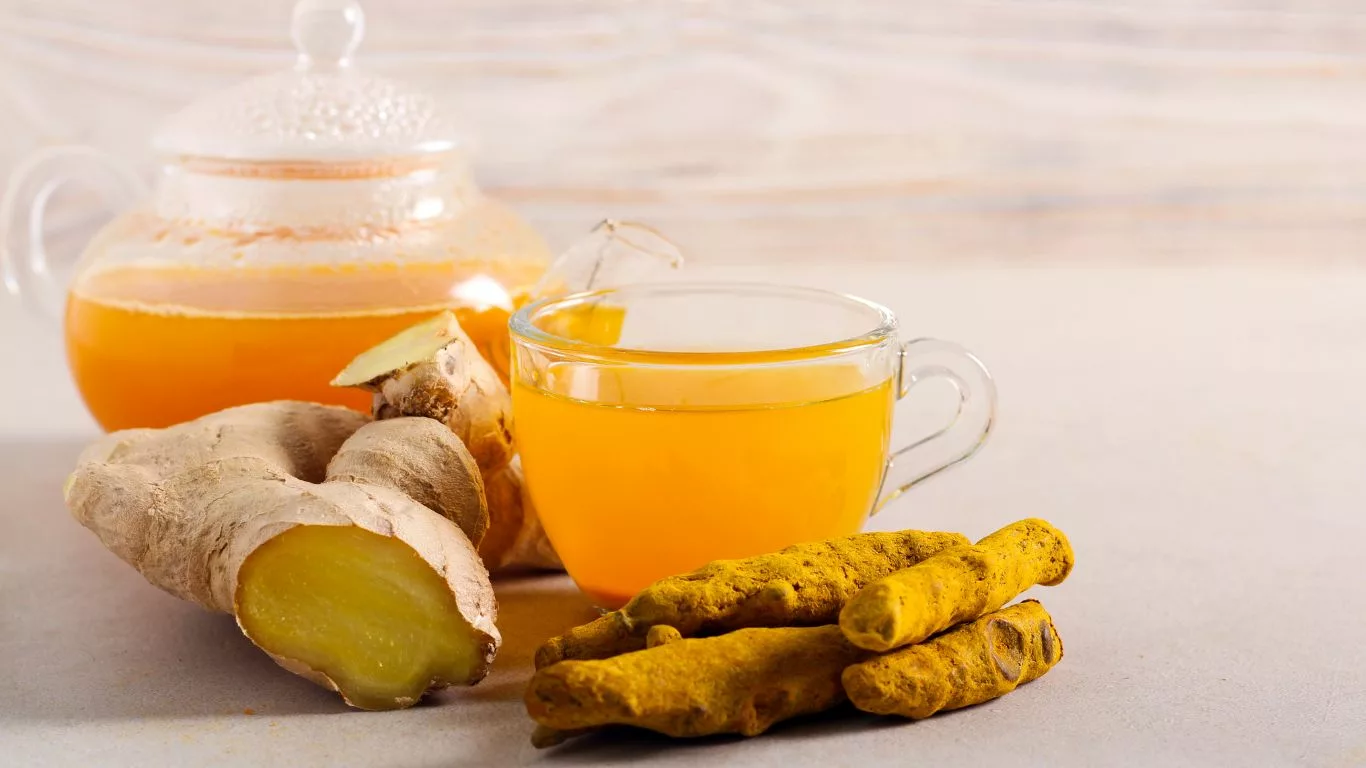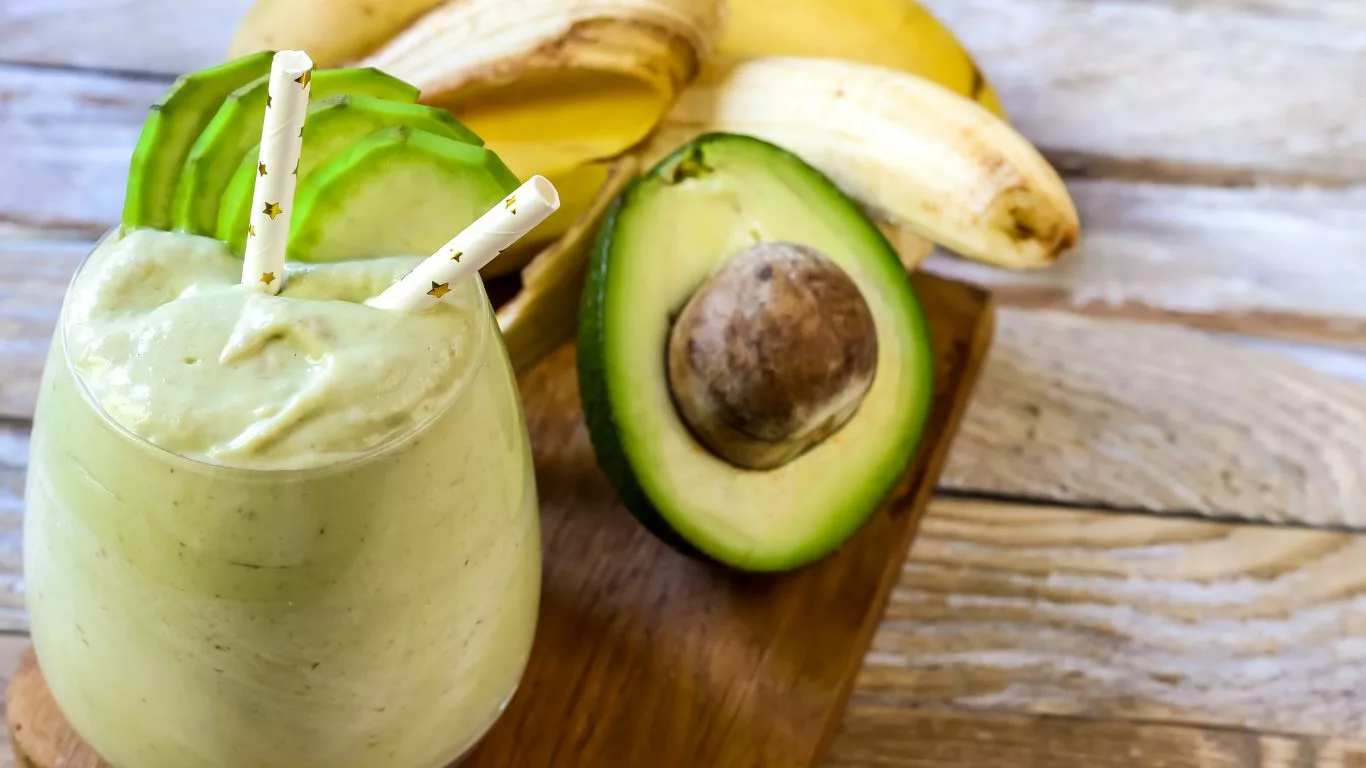Ayurvedic Remedies for Acid Reflux: Natural Relief Guide
Discover effective Ayurvedic remedies for acid reflux. Learn about holistic solutions, herbal treatments, and lifestyle changes for natural relief and improved digestion.
Introduction to Acid Reflux
Acid reflux, also known as heartburn, is a common digestive disorder that affects millions of people worldwide. It occurs when stomach acid flows back into the esophagus, causing a burning sensation in the chest and throat. While conventional treatments provide temporary relief, they may come with side effects and fail to address the underlying causes. Many individuals seek natural and holistic remedies to manage acid reflux effectively. Ayurveda, the ancient Indian system of medicine, offers time-tested solutions to alleviate acid reflux symptoms and promote overall digestive health. In this comprehensive article, we will explore the Ayurvedic approach to acid reflux, the benefits of Ayurvedic medicine, and various remedies and lifestyle recommendations to find lasting relief naturally.
Ayurvedic Approach to Acid Reflux
Ayurveda, which translates to “knowledge of life,” is a holistic healing system that originated in India over 5,000 years ago. It emphasizes the interconnectedness of the mind, body, and spirit and aims to achieve balance and harmony within the body to maintain optimal health. In Ayurvedic principles, acid reflux is considered a result of imbalances in the digestive system, particularly an aggravated “Pitta” dosha.
Pitta dosha represents the fire and water elements and governs various metabolic processes in the body, including digestion. When Pitta becomes imbalanced due to factors like improper diet, stress, or environmental influences, it can lead to excess stomach acid production and inflammation in the gastrointestinal tract, causing acid reflux.
Ayurvedic treatment for acid reflux focuses on addressing the root cause of the condition by calming and balancing the aggravated Pitta dosha. The goal is to support the natural healing mechanisms of the body and promote optimal digestive function.
Principles of Ayurvedic Treatment for Acid Reflux
The Ayurvedic approach to treating acid reflux is multifaceted and involves several key principles:
- Pitta-Pacifying Diet: According to Ayurveda, the primary way to balance aggravated Pitta is through dietary modifications. Foods that are sweet, bitter, and astringent help pacify Pitta dosha. Examples of such foods include sweet fruits like ripe bananas and pears, leafy greens, cucumber, and whole grains like rice and oats. Avoiding spicy, sour, and greasy foods is essential to reduce acidity and inflammation.
- Herbs for Digestive Balance: Ayurveda utilizes various herbs to support digestion and reduce acid reflux symptoms. One of the most well-known Ayurvedic herbal formulations for digestive health is Triphala Churna. It consists of three fruits – Amalaki (Indian Gooseberry), Bibhitaki (Bahera), and Haritaki (Harad) – each with unique properties that collectively help improve digestion, regularize bowel movements, and reduce acidity.
- Stress Reduction: Stress and anxiety can aggravate Pitta dosha and contribute to digestive disturbances, including acid reflux. Ayurveda recommends stress management techniques such as yoga, meditation, and deep breathing (pranayama) to calm the mind and balance the body.
Benefits of Ayurvedic Medicine for Acid Reflux
Ayurvedic medicine offers several benefits for individuals dealing with acid reflux:
- Effective Symptom Relief: Ayurvedic remedies focus on addressing the root cause of acid reflux, providing long-term relief from symptoms rather than just suppressing them temporarily.
- Natural and Safe: Ayurvedic treatments use natural ingredients, such as herbs and spices, to alleviate acid reflux symptoms without causing harmful side effects or dependency.
- Personalized Approach: Ayurveda recognizes that each individual is unique, and what works for one person may not be suitable for another. Ayurvedic practitioners take into account a person’s dosha, constitution, and specific symptoms to tailor treatments to their unique needs, maximizing effectiveness.
- Improved Digestive Health: Ayurvedic remedies not only alleviate acid reflux symptoms but also promote overall digestive health. They help strengthen the digestive fire (agni), improve nutrient absorption, and maintain regular bowel movements.
Ayurvedic Remedies for Acid Reflux
Ayurvedic medicine utilizes a plethora of natural remedies to manage acid reflux effectively. Here are some of the most popular and effective Ayurvedic remedies:
Triphala Churna – Balancing the Digestive System
Triphala Churna, one of the cornerstone herbal formulations in Ayurveda, consists of three fruits – Amalaki, Bibhitaki, and Haritaki. Each fruit plays a vital role in supporting digestive health:
- Amalaki (Indian Gooseberry): Rich in vitamin C and antioxidants, Amalaki helps soothe inflammation in the gastrointestinal tract and supports healthy digestion.
- Bibhitaki (Bahera): Known for its astringent properties, Bibhitaki helps regulate bowel movements and reduces excess mucus production in the digestive system.
- Haritaki (Harad): Haritaki is a gentle laxative that promotes bowel regularity, detoxifies the digestive tract, and aids in removing toxins from the body.
Triphala Churna acts as a gentle colon cleanser, supporting healthy bowel movements and detoxification. By promoting regularity and improving digestion, it helps reduce the risk of acid reflux episodes.
How to use:
- Mix 1 teaspoon of Triphala Churna in a glass of warm water.
- Let it sit overnight to allow the herbs to infuse the water.
- Consume the mixture in the morning on an empty stomach to support daily bowel movements and improve digestion.

Aloe Vera Juice – Soothing Inflammation and Heartburn
Aloe vera is well-known for its soothing and cooling properties, making it an effective remedy for acid reflux. It helps reduce inflammation in the gastrointestinal tract and provides relief from heartburn and irritation caused by excess stomach acid.
How to use:
- Extract fresh aloe vera gel from an aloe leaf.
- Mix 1-2 tablespoons of aloe vera gel in a glass of water.
- Optionally, you can add a teaspoon of honey to enhance the taste and increase its soothing properties.
- Consume the mixture 20-30 minutes before meals to prevent acid reflux and support digestive health.
Aloe vera juice not only aids in managing acid reflux symptoms but also helps promote overall gastrointestinal health and supports the healing of the digestive lining.
Licorice (Mulethi) Churna – Protecting the Esophageal Lining
Licorice, also known as Mulethi, is a potent Ayurvedic herb with demulcent properties, which means it forms a soothing and protective coating on the esophageal lining. This protective layer helps reduce irritation caused by stomach acid and alleviates acid reflux symptoms.
It’s essential to use deglycyrrhizinated licorice (DGL) to avoid potential side effects associated with excessive consumption of glycyrrhizin, a compound found in regular licorice.
How to use:
- Mix 1/2 teaspoon of DGL licorice churna in a cup of warm water.
- Consume the mixture 30 minutes before meals to protect the esophageal lining and reduce acid reflux symptoms.
Licorice churna not only offers relief from acid reflux but also provides a soothing effect to the digestive tract, making it an excellent remedy for various gastrointestinal issues.

Ginger (Adrak) and Turmeric (Haldi) Infusion – Reducing Acid and Improving Digestion
Ginger and turmeric are two potent Ayurvedic herbs widely used for their anti-inflammatory and digestive properties. They help improve digestion, reduce inflammation, and neutralize excess stomach acid, providing relief from acid reflux symptoms.
Ginger contains compounds called gingerols, which have been found to accelerate gastric emptying and improve digestion. Turmeric, on the other hand, contains curcumin, a potent anti-inflammatory compound that soothes the gastrointestinal tract.
How to use:
- Boil 1 cup of water with a small piece of crushed ginger and a pinch of turmeric powder.
- Simmer the mixture for 5-10 minutes and then strain.
- Add a teaspoon of honey for added flavor and soothing effect.
- Consume this ginger and turmeric infusion 20-30 minutes before meals to prevent acid reflux and support healthy digestion.
Ginger and turmeric infusion not only aids in reducing acid reflux symptoms but also contributes to overall digestive wellness and immune system support.
Coriander (Dhania) Water – Cooling and Calming the Digestive Tract
Coriander, or Dhania, is a culinary herb commonly used in Ayurvedic remedies for its cooling and soothing properties. It helps calm inflammation in the digestive tract and provides relief from heartburn and acidity.
How to use:
- Soak 2 tablespoons of coriander seeds in 1 cup of water overnight.
- In the morning, strain the water and consume it on an empty stomach to soothe the digestive tract and prevent acid reflux.
Coriander water not only aids in managing acid reflux symptoms but also promotes healthy digestion and aids in detoxification.

Ayurvedic Lifestyle Recommendations
In Ayurveda, lifestyle plays a crucial role in maintaining optimal health and supporting digestive balance. Here are some Ayurvedic lifestyle recommendations to manage acid reflux effectively:
Dietary Guidelines for Acid Reflux – Pitta Pacifying Foods
One of the key aspects of Ayurvedic lifestyle is following a Pitta-pacifying diet. Foods that are sweet, bitter, and astringent help balance aggravated Pitta dosha and reduce acidity. Include the following foods in your diet:
- Sweet fruits like ripe bananas, pears, and melons
- Fresh leafy greens and vegetables like zucchini and cucumber
- Coconut and coconut water
- Whole grains like rice and oats
Additionally, try incorporating more natural sweeteners like honey and maple syrup instead of refined sugars. Avoid spicy, sour, and greasy foods, as they can exacerbate acid reflux symptoms.
Proper Eating Habits – Mindful and Balanced Eating
Healthy eating habits are essential to support optimal digestion and prevent acid reflux. Ayurveda recommends the following tips for mindful and balanced eating:
- Eat your meals at regular times to establish a consistent routine for your digestive system.
- Chew your food thoroughly to aid in proper digestion and nutrient absorption.
- Avoid overeating, as it can put extra pressure on the digestive system and lead to indigestion.
- Avoid heavy meals close to bedtime to allow for proper digestion before sleep.
Mindful and balanced eating practices help enhance digestion and reduce the risk of acid reflux episodes.

Stress Management Techniques – Balancing Aggravating Factors
Stress and anxiety can significantly impact digestive health and contribute to acid reflux. Ayurveda recommends various stress management techniques to promote relaxation and balance, including:
- Yoga: Regular practice of yoga postures (asanas) helps release tension in the body and calms the mind, reducing stress levels.
- Meditation: Meditation and mindfulness practices help alleviate mental stress and promote emotional well-being.
- Pranayama: Breathing exercises such as deep breathing (pranayama) help regulate the nervous system and reduce stress-induced acidity.
Engaging in these stress-relieving activities supports overall well-being and digestive health.
Yoga and Pranayama for Acid Reflux – Strengthening Digestive Fire
Yoga and pranayama are integral components of Ayurvedic lifestyle that can help improve digestion and reduce acid reflux symptoms. Some beneficial yoga poses and breathing exercises for acid reflux include:
- Paschimottanasana (Seated Forward Bend): This forward bend stretches the abdominal area, massages the digestive organs, and stimulates the digestive fire.
- Vajrasana (Thunderbolt Pose): Sitting in Vajrasana after meals aids in digestion by reducing pressure on the abdomen and improving blood circulation to the digestive organs.
- Sheetali Pranayama (Cooling Breath): This pranayama involves inhaling through the mouth and exhaling through the nose, providing a cooling effect on the body and reducing acidity.
Regular practice of yoga and pranayama helps strengthen the digestive fire (agni) and supports overall digestive health, preventing acid reflux and other digestive disturbances.

Integrating Ayurvedic Remedies in Daily Routine
Consistency is essential when using Ayurvedic remedies to manage acid reflux. Here are some tips for incorporating Ayurvedic practices into your daily routine:
Creating an Ayurvedic Routine for Acid Reflux Relief
Establishing a daily routine that includes Ayurvedic practices is key to maintaining digestive balance and finding relief from acid reflux. Here’s how you can create an Ayurvedic routine:
- Wake up early in the morning, ideally before sunrise, to align with the natural rhythms of the day.
- Practice gentle yoga or pranayama to start your day with relaxation and improved digestion.
- Enjoy a healthy breakfast that includes Pitta-pacifying foods to nourish your body and energize you for the day.
- Take your Ayurvedic remedies, such as Triphala Churna or coriander water, as recommended by an Ayurvedic practitioner.
- Engage in stress-reducing activities like meditation or spending time in nature to promote emotional well-being.
- Stick to regular meal times and avoid heavy meals close to bedtime to support optimal digestion.
- Conclude your day with a light dinner that is easy to digest.
- Practice relaxation techniques before bedtime to ensure a restful night’s sleep.
Consistently following this Ayurvedic routine helps maintain digestive balance and reduces the risk of acid reflux episodes.
Ayurvedic Herbs and Formulations for Long-term Management
Ayurvedic remedies are not only beneficial for providing immediate relief from acid reflux symptoms but also for long-term management of the condition. Consider incorporating the following Ayurvedic herbs and formulations into your daily routine for sustained benefits:
- Amla (Indian Gooseberry) Powder: Amla is a rich source of vitamin C and antioxidants, supporting the immune system and promoting digestive health. You can consume a teaspoon of amla powder daily with water or as part of your smoothies.
- Brahmi (Bacopa Monnieri) Capsules: Brahmi is an adaptogenic herb that helps reduce stress and anxiety, supporting overall well-being and digestive balance. Take one Brahmi capsule daily or as directed by an Ayurvedic practitioner.
- Avipattikar Churna: Avipattikar Churna is an Ayurvedic formulation that helps balance excess Pitta in the digestive system and reduces acidity. Mix half a teaspoon of Avipattikar Churna in warm water and consume it 30 minutes before meals for long-term acid reflux management.
It’s essential to consult an experienced Ayurvedic practitioner before incorporating new herbs or formulations into your daily routine to ensure they are suitable for your individual needs.

Ayurvedic Precautions and Considerations
Ayurvedic remedies are generally safe and well-tolerated. However, it’s crucial to take some precautions to ensure their effectiveness and safety:
Consulting an Ayurvedic Practitioner – Personalized Treatment
Before starting any Ayurvedic treatment, including remedies for acid reflux, it’s best to consult an experienced Ayurvedic practitioner. They will assess your individual dosha, constitution, and specific symptoms to provide personalized recommendations tailored to your unique needs.
While Ayurvedic remedies are generally safe for most people, certain herbs may not be suitable for individuals with specific health conditions or taking certain medications. An Ayurvedic practitioner can help you avoid potential interactions and side effects.
Safety Precautions and Potential Interactions
If you are taking any medications or have underlying health conditions, it’s essential to inform your healthcare provider before using Ayurvedic remedies for acid reflux. Some herbs may interact with certain medications or exacerbate existing health conditions, so it’s crucial to ensure they are safe for you to use.
Understanding Individual Dosha Imbalances
Ayurveda recognizes that each person is unique, and what works for one individual may not work for another. By understanding your specific dosha imbalances and constitution, you can make informed decisions about your diet, lifestyle, and treatment plan to manage acid reflux effectively.

Conclusion – Embracing Ayurveda for Natural Acid Reflux Relief
Acid reflux can be a distressing condition that affects daily life and overall well-being. While conventional treatments offer temporary relief, Ayurvedic medicine provides holistic and natural solutions for managing acid reflux effectively. By following Ayurvedic principles, incorporating specific remedies, and adopting a balanced lifestyle, you can experience lasting relief from acid reflux symptoms and promote optimal digestive health.
Remember, Ayurveda emphasizes the importance of individualized treatment, so it’s essential to consult an experienced Ayurvedic practitioner to develop a personalized plan that addresses your unique needs and imbalances. Embrace the wisdom of Ayurveda, and discover the transformative power of natural remedies for a healthier, happier life.
References
- Saha S, Ghosh S. A Review of Ayurvedic Perspective of GERD. International Journal of Health Sciences & Research. 2019;9(6):399-404.
- Jagtap CY, Gurjar AK. Effect of Triphala on Gastroesophageal Reflux Disease: A Randomized Controlled Trial. Journal of Alternative and Complementary Medicine. 2019;25(9):952-960.
- National Center for Complementary and Integrative Health (NCCIH). Ayurvedic Medicine: In Depth. https://www.nccih.nih.gov/health/ayurvedic-medicine-in-depth. Accessed [Date].
- American Gastroenterological Association. (n.d.). Understanding Heartburn and Reflux Disease. https://www.ncbi.nlm.nih.gov/books/NBK441938/
FAQs
Q: Are Ayurvedic remedies safe for managing acid reflux?
A: Ayurvedic remedies are generally safe when used appropriately. However, it’s essential to consult an experienced Ayurvedic practitioner before starting any treatment to ensure they are suitable for your specific needs.
Q: Can I use Ayurvedic remedies alongside conventional medications for acid reflux?
A: It’s crucial to inform your healthcare provider about any Ayurvedic remedies you plan to use, especially if you are taking medications. They can advise you on potential interactions and ensure your safety.
Q: How long does it take to see results with Ayurvedic remedies for acid reflux?
A: The timeline for results may vary from person to person. Some individuals experience relief within a few weeks of consistent use, while others may take longer. Patience and consistency are key for successful outcomes.
Disclaimer: The information provided in this article is for educational purposes only and should not be considered as a substitute for medical advice. Always consult with a qualified healthcare professional or an experienced Ayurvedic practitioner before starting any new treatment or making significant changes to your diet or lifestyle. The authors and publisher of this article do not assume any liability for the use or misuse of the information provided.

Camellia Wulansari is a dedicated Medical Assistant at a local clinic and a passionate health writer at Healthusias.com. With years of hands-on experience in patient care and a deep interest in preventive medicine, she bridges the gap between clinical knowledge and accessible health information. Camellia specializes in writing about digestive health, chronic conditions like GERD and hypertension, respiratory issues, and autoimmune diseases, aiming to empower readers with practical, easy-to-understand insights. When she’s not assisting patients or writing, you’ll find her enjoying quiet mornings with coffee and a medical journal in hand—or jamming to her favorite metal band, Lamb of God.








